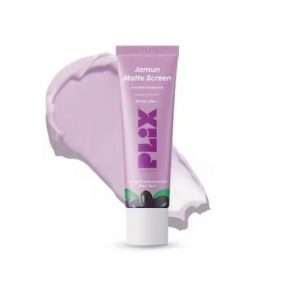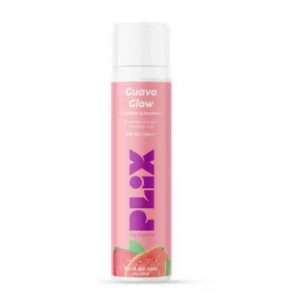How To Apply Sunscreen: Everything You Need to Know

Whether you’re heading to the beach, running to your workplace, going for a hike or simply stepping out for a quick errand, there’s one thing you must not miss–applying sunscreen! In the ever-evolving world of skincare, it is the age-old sunscreen that remains timeless and the most essential element. Irrespective of your age, gender, or skin type, sunscreen should be a non-negotiable part of your daily routine. But it’s not just about slapping on some sunscreen; it’s about how you apply it that truly matters. In this guide, we’ll uncover its importance & delve into the correct how to apply sunscreen.
Related Product – dewy sunscreen
Related Product – Sun Prepped Skin
Benefits of Sunscreen
Before we dive into the nitty-gritty of how to apply sunscreen, let’s take a moment to appreciate its significance. Sunscreen is not just another skincare product; it’s the foundation upon which your skin’s health and beauty depend. Here’s why it should be a top priority:
-
Protection from Harmful UV Rays:
Sunscreen acts as a barrier against the sun’s harmful ultraviolet (UV) rays, shielding your skin from the damaging effects of UV radiation.
-
Age-Defying Benefits:
The benefits of using sunscreen go beyond protection, it also helps to maintain your skin’s youthful radiance as UV rays break down collagen and elastin, leading to wrinkles, fine lines, and age spots.
-
Skin Cancer Prevention:
Skin cancer is a real and growing concern. The benefits of using sunscreen regularly reduce the risk of skin cancer, including the most dangerous form, melanoma.
-
Even Skin Tone:
Sunscreen helps maintain an even skin tone by preventing redness, dark spots, tanning and other discolourations caused by sun exposure.
Finding the Right Sunscreen for Your Skin Type
Before discovering the best way how to apply sunscreen, let’s talk about a crucial step that’s often overlooked – finding the right sunscreen for your unique skin type. Just as we wouldn’t wear one-size-fits-all shoes, we shouldn’t use a one-size-fits-all sunscreen. Your skin has its own quirks and needs, and choosing the appropriate sunscreen can make all the difference in your sun protection regimen.
Opt for High SPF Sunscreen for Face
When picking out sunscreen for face, you’ll often come across SPF, which stands for Sun Protection Factor. The higher the SPF number, the more protection it offers. SPF 50 is a solid choice for daily use, as it blocks around 98% of UVB rays. Choose the dermatologists recommend sunscreen with broad spectrum SPF 50 as it provides an extra layer of defence against skin damage.
Sunscreen for Oily or Acne-Prone Skin:

If your skin tends to be on the oilier side or is prone to breakouts, look for sunscreen for face which is labelled as “oil-free,” “non-comedogenic,” or “matte finish.” These formulations are designed to provide sun protection without clogging your pores or making your skin feel greasy. Gel-based sun protection sunscreens are also a good option for a lightweight feel.
If you have oily or acne-prone skin, consider using the Plix Jamun Mattifying Lightweight Sunscreen with SPF50+ PA+++ as it offers sun protection as well as combats acne. Its innovative formula of Jamun and active ingredients can shield your skin from the harmful effects of both UVA and UVB rays. One standout feature of this sunblock sunscreen is its ability to prevent tanning. With its thin protective layer, it actively inhibits your skin’s tendency to tan, allowing you to maintain your natural complexion. The addition of Suncat DE, a clinically proven ingredient, further enhances its UV radiation-blocking capabilities. It also contains Salicylic acid, a potent ingredient known for its gentle exfoliating properties, which helps unclog pores and soothe inflammation, ultimately reducing the appearance of acne. Zinc oxide, another key component, acts as both an antibacterial and anti-inflammatory agent. It forms a protective barrier on the skin’s surface, reflecting and scattering harmful UV rays away from your skin, effectively preventing sun damage. This SPF 50 sunscreen not only offers excellent UV protection but also tackles acne, prevents tanning, and supports healthy, youthful-looking skin.
Sunscreen for Dry or Sensitive Skin:
For dry or sensitive skin, seek out sunblock sunscreens that offer added hydration and are labelled as “moisturizing” or “for sensitive skin.” Look for ingredients like hyaluronic acid or glycerin to help lock in moisture. Cream-based sunscreens tend to be more moisturizing and can provide a soothing barrier against the sun.
Sunscreen for Combination Skin:

If your skin falls somewhere in between oily and dry, you have the luxury of choosing from a wider range of sunscreen products. A broad-spectrum sunscreen with SPF 30 or higher should work well. You can opt for a lotion or cream formulation, depending on your preference. Just ensure it offers both UVA and UVB protection.
If you have dry, dull or combination skin & you’re looking for a sunscreen that can deeply nourish your skin and unveil natural radiance, this is what you must get–
Plix Guava Glow Invisible Sunscreen Gel with SPF 50+ PA+++. This dewy sunscreen offers an ultra-light, invisible finish that imparts a luminous complexion. With broad-spectrum SPF 50 protection, it guards against UVA, UVB, and blue light damage, preventing hyperpigmentation and the signs of photo-aging such as sagging, wrinkles, and fine lines. The best thing about this sunscreen is it’s lightweight, non-sticky, and non-greasy, ensuring no white cast upon application. Its potent blend of SunCat DE, Ceramides 11, Vitamin C, Guava extract, Hyaluronic Acid, and Pentavitin works together to reduce hyperpigmentation-induced dark spots and discolouration, leaving your skin brightened and even-toned.
How to Apply Sunscreen: The Correct Way
Now that you’re aware of the remarkable benefits of sunscreen, let’s explore how to apply sunscreen to maximize its protective powers. To ensure your skin gets the protection it deserves, follow these steps:
Step 1: Start with Clean Skin
Before applying sunscreen, make sure your skin is clean and dry. Wash your face with a gentle cleanser that suits your skin type. This will help sunscreen adhere better and ensure even coverage.
Step 2: Prep your Skin
It’s time to pamper your skin by applying your favourite skincare products such as moisturizers, toners, serums, and spot treatments. These products nourish and hydrate your skin, giving it the TLC it deserves.
Step 3: Apply Sunscreen with the 2-Finger Technique
Before applying, make sure to give your sunscreen a gentle shake to ensure it’s well-mixed. Now, here’s a simple trick to ensure you’re using the right amount of sunscreen. Use the 2-finger rule: dispense an ample amount of sunscreen to cover both your index and middle finger. This should be enough to protect your face and neck adequately.
Step 4: Blend, Blend, Blend
Gently blend the sunscreen into your skin using upward and outward motions. Be thorough, ensuring it’s evenly distributed across your face. Pay special attention to your nose, ears, and neck, as these areas are often neglected but highly vulnerable to sun damage.
Step 5: Don’t Forget Your Lips
Your lips need protection too. Use a lip balm with SPF to keep them safe from the sun’s rays.
Step 6: Cover Your Body
For the rest of your body, squeeze out enough body sunscreen & apply it generously and evenly, making sure every exposed area is covered. Don’t overlook spots like the tops of your feet, the back of your neck, and the back of your hands.
Step 7: Reapplication is Key
Sunscreen isn’t a one-and-done deal. Reapply it every two hours, especially if you’re swimming or sweating. Even if your sunscreen claims to be “water-resistant,” it’s best not to take chances.
Step 8: Consider Sun-Protective Clothing
While sunscreen is a fantastic defence, consider wearing sun-protective clothing and a wide-brimmed hat if you’ll be out in the sun for an extended period. It adds an extra layer of protection.
Now that you know how to apply sunscreen, it’s time to take your skincare to the next level by consuming Sunscreen Capsules. the battle against dark spots and sun-related skin concerns. Enriched with the clinically studied NutroxSun, this cutting-edge formula blends potent ingredients for maximum sun protection and skin rejuvenation. Nutroxsun can help shield your skin from photoinduced oxidation, photoaging, and photodamage caused by the sun’s harmful rays. This formula’s UV protection is top-notch, ensuring your skin’s well-being under the sun. Its nourishing blend of ingredients, including Hyaluronic Acid, keeps your skin hydrated from within and in optimal health. But that’s not all; Plix Sun Prepped Skin is your secret to anti-ageing benefits. It enhances skin elasticity, reduces fine lines and wrinkles, and even fades age spots, leaving you with a more youthful appearance. Incorporating this supplement into your Daily Skin Care Routine enhances your UV radiation protection. The combination of Mediterranean rosemary and grapefruit extract adds an extra layer of sun-induced damage protection while nourishing your skin from the inside out.
Frequently Asked Questions (FAQs)
-
Can I use the same sunscreen on my face and body?
While you can use the same sunscreen for both your face and body, some prefer specialized facial sunscreens. These are often formulated to be more lightweight and non-comedogenic, making them ideal for the delicate skin on your face.
-
Can I apply sunscreen without moisturizer?
Yes, you can apply sunscreen without moisturizer, especially if your sunscreen has moisturizing properties or if you have oily skin. However, moisturizer can be beneficial for those with dry or sensitive skin, as it helps hydrate and prepare the skin for sunscreen. If you choose to skip moisturizer, make sure your sunscreen provides adequate hydration and is suitable for your skin type.
-
Do I need sunscreen indoors?
If you’re indoors and away from direct sunlight, you don’t need sunscreen. However, if you’re near windows or spend a lot of time in a space with natural light, it’s still a good idea to apply sunscreen, as UV rays can penetrate glass.
-
Should I use sunscreen every day?
Yes, it’s highly recommended to use sunscreen every day, regardless of the weather or season. UV rays can damage your skin even on cloudy or overcast days, and cumulative sun exposure can lead to premature ageing and an increased risk of skin cancer. Make sunscreen a daily habit by incorporating it into your morning skincare routine, and don’t forget to reapply when necessary, especially if you’ll be outdoors.














